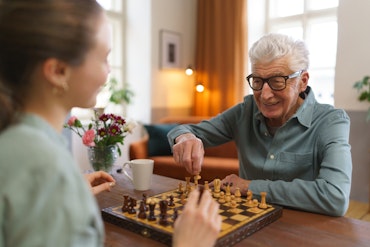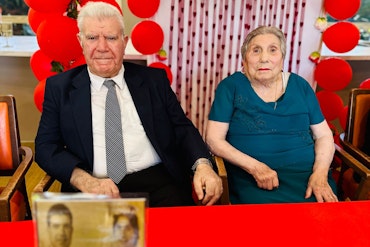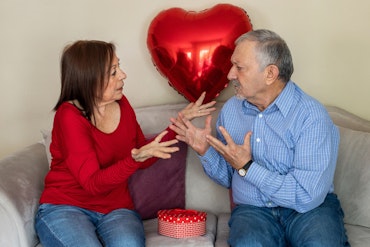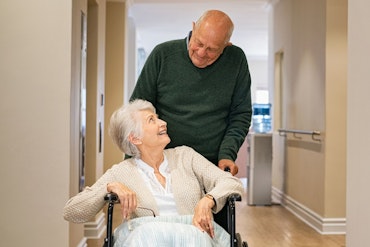Die your own death
Palliative care physician, Dr Michael Barbato, believes a “good death” doesn’t exist. “The words ‘good’ and ‘death’ just don’t seem to go well together for me. Death is painful; it’s sad. We should be looking at allowing these people to die their own deaths,” he says.
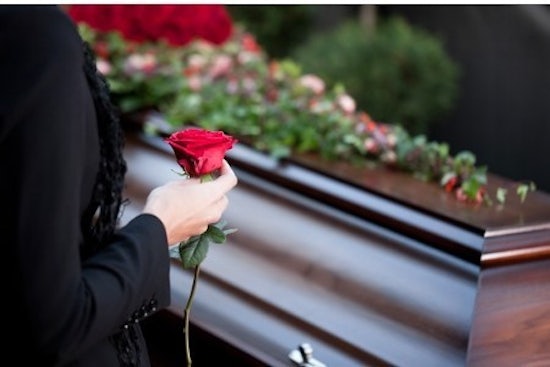
Mourning woman holds rose at funeral
Palliative care physician, Dr Michael Barbato, believes a “good death” doesn’t exist.
“The words ‘good’ and ‘death’ just don’t seem to go together well for me. Death is painful; it’s sad,” Dr Barbato says.
“While there are some gifts around death, rather than using the term ‘good death’, we should be looking at allowing these people to die their own deaths,” he adds.
Dr Barbato, who has been a palliative care physician for more than 20 years, was one of three panellists to address delegates at Palliative Care Victoria’s biennial conference in Melbourne late last week.
“Anything that has the word death in a sentence frightens people off. Death, morphine and palliative care is a trio nobody wants to hear… and it’s a very difficult barrier to break down,” he says.
“The general community don’t want to address death. It may not be that they’re afraid of death; it’s just they don’t want to be there when it happens,” he says.
While Dr Barbato and others working in palliative care “work and talk about death”, he admits it can still be a “really remote” subject to professionals.
“This is when we have to look inside because we may have the skills and qualities to help others, and we need to know when to offer these skills and qualities.
“My interest in quality palliative care really comes down to how we can deliver palliative care to an individual who is dying and to their family. We need to try to understand who this person is, their experiences and what’s important to them; and we need to try to tune into that.”
Dr Barbato says “humility, vulnerability, honesty and empathy” are words which become important in providing palliative care to a patient nearing the end of life.
“I find it not only a challenge, but extremely rewarding. Recognising the type of death the patient wants, and giving them choice and control becomes imperative,” he says.
He encourages palliative care professionals to “get on patients’ wavelengths”.
“There are no words for people to use to describe what it’s like to die and the question is: where are we in this? Do we have a trained enough ear to recognise the significance of the words our patients are using and understand what they want at the end of their life?” Dr Barbato asks.
Opening up to delegates about the death he would choose when his time comes, Dr Barbato says it’s simple.
“I’d like to know the professionals that are present, but I don’t want them hovering over my bedside.
“I want physical comfort, precious normality. I want to be in bed with my pillow and I want all of the things that make my life worthwhile in the one room, including my family and close friends.”
Joining Dr Barbato on the panel was Sue Hanson, national manager of Little Company of Mary Health Care, who says a good death doesn’t necessarily need to be complicated by medical jargon or people in ‘white coats’.
“The ability to be present for someone is all in the human capacity; let’s not imagine this to be a specialist skill.
“This is something that each of us as a human being has the capacity to do; to be present for another human being who is suffering,” Ms Hanson says.


